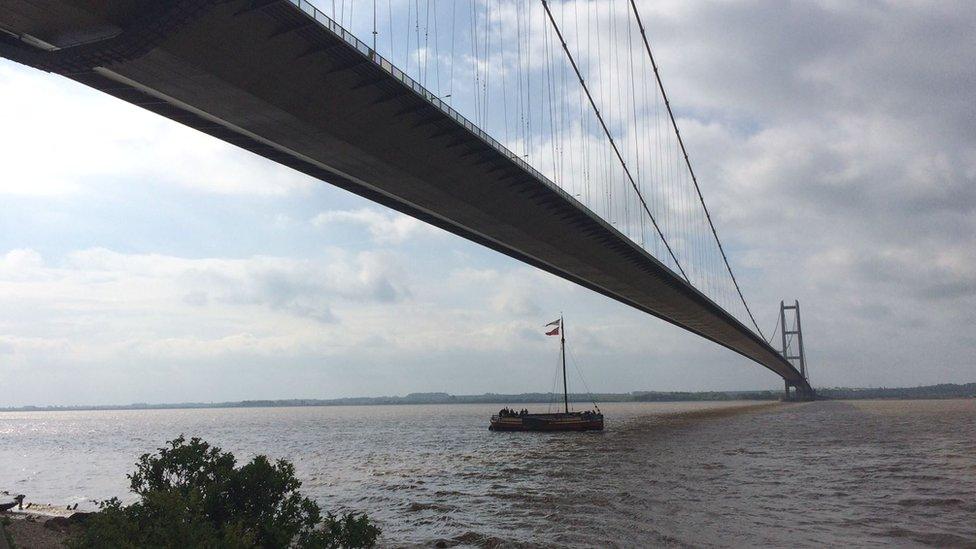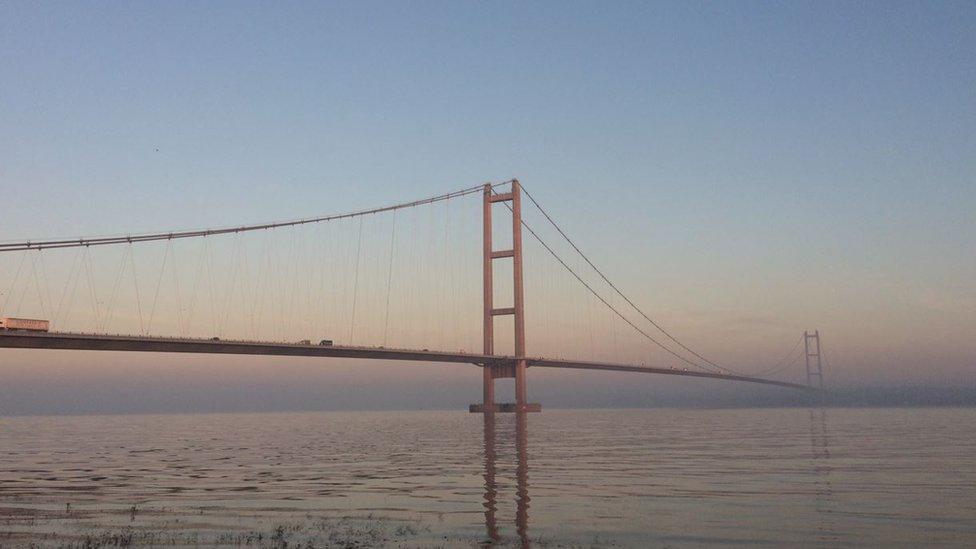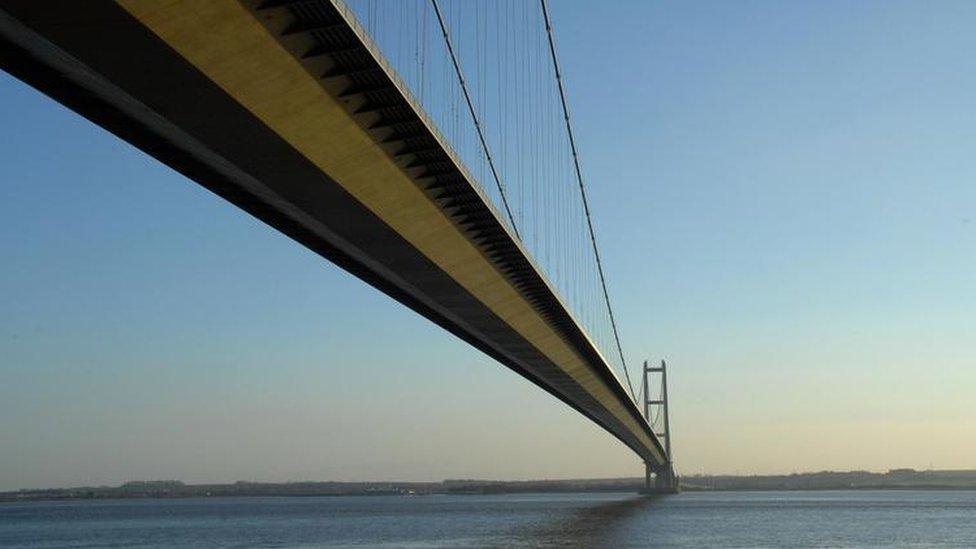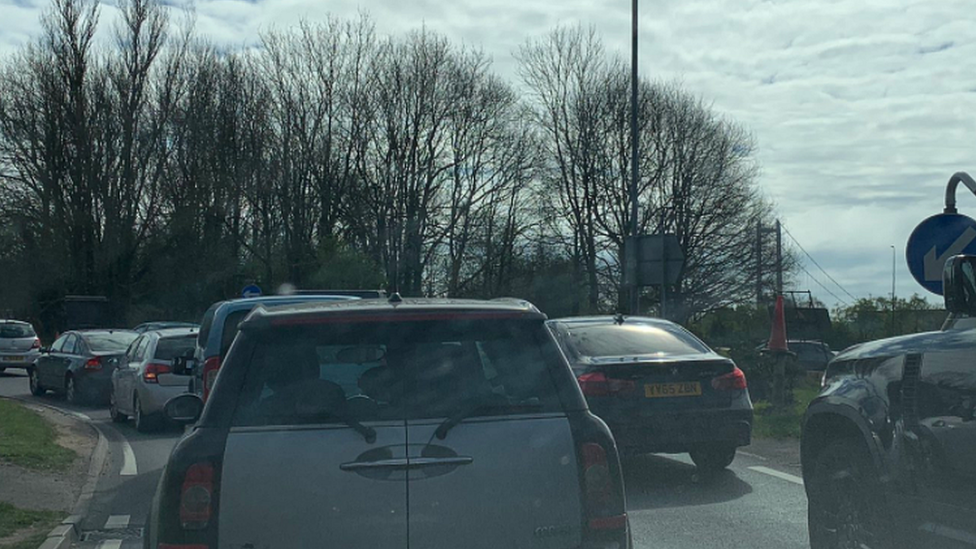Humber Bridge: Traffic fears over plan to scrap toll booths
- Published

A final decision has not yet been made on removing the toll booths on the Humber Bridge
Traffic on the Humber Bridge could worsen if plans to remove the toll booths go ahead, a councillor has said.
The Humber Bridge Board is considering getting rid of the booths in favour of a "free flow toll collection system".
Councillor David Nolan said he fears their removal would result in a rush of northbound traffic at peak hours.
A decision on the future of the booths will be discussed on 21 October, but they would not be removed for three years if approved.
Mr Nolan, councillor for the Hessle ward, told the Local Democracy Reporting Service the booths currently slow northbound traffic and their removal would lead to a stream of vehicles arriving at peak times.
He also said a move to online payment of the tolls would discriminate against drivers who do not use smart phones or have internet access.
"If they are removed, the traffic will arrive at the [Humber Bridge] roundabout in a stream, thereby adding to the existing congestion at peak times."

Payment of the toll went cashless in 2021, with drivers using card or mobile phones to pay
However, councillor Richard Hannigan, a director of the Humber Bridge Board, said: "You see at peak times traffic backing up through the booths because it takes time to take the charge for the crossing.
"From a personal perspective I think it's the way forward but that will be down to us as a board to decide."
The Humber Bridge was built in 1981 and sees an average of 33,000 crossing a day.
The tolls went cashless in 2021, with drivers using card or mobile phone payments.
Motorists pay £1.50 for a one-way car journey across the bridge or £1.35 for drivers using an electronic tag.

Follow BBC East Yorkshire and Lincolnshire on Facebook, external, Twitter, external, and Instagram, external. Send your story ideas to yorkslincs.news@bbc.co.uk, external.
Related topics
- Published3 December 2020

- Published28 March 2022
